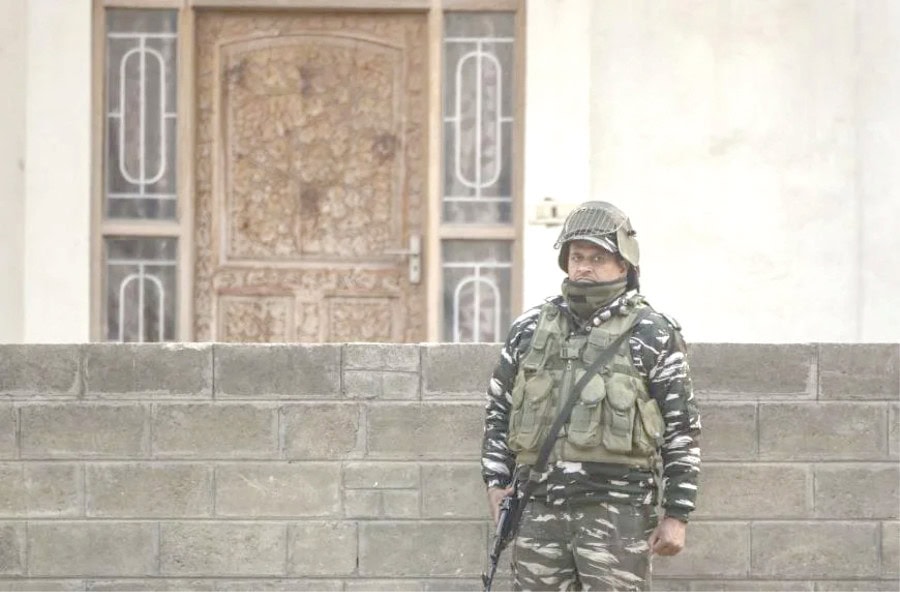Stop unlawful operations against Kashmiri and other rights groups
The Indian government is using counterterrorism operations to silence peaceful dissenters, human rights activists, and journalists, Human Rights Watch said today. On October 28 and 29, 2020, the authorities carried out several raids on the offices of nongovernmental organizations, activists’ homes, and a newspaper office in Jammu and Kashmir, Delhi, and Bangalore.
The raids are part of a crackdown by the ruling Bharatiya Janata Party (BJP) on civil society groups. The authorities have increasingly brought politically motivated criminal cases, including under broadly worded terrorism and sedition laws, against activists, journalists, academics, students, and others and used foreign funding regulations to target outspoken groups for their human rights work.
“India faces serious security challenges, but instead of addressing the problems in a rights-respecting manner, the authorities appear determined to crush peaceful criticism and calls for accountability,” said Meenakshi Ganguly, South Asia director at Human Rights Watch. “Using authoritarian tactics against outspoken critics and journalists needs to stop.”
The National Investigation Agency (NIA), which conducted the raids, has accused the targeted groups of “raising funds in India and abroad in the name of charitable activities and then using those funds for carrying out secessionist and separatist activities in Jammu and Kashmir.” Those whose offices and homes were raided include the human rights defender Khurram Parvez, coordinator of Jammu and Kashmir Coalition of Civil Society; his associates Parvez Ahmad Matta and Bangalore-based associate Swati Sheshadri; and Parveena Ahangar, chairperson of the Association of Parents of Disappeared Persons (APDP), whose son is among those forcibly disappeared in Kashmir. Both groups have long worked for justice for victims of security force abuses.
Ahangar said in a statement that the NIA seized documents containing sensitive information about victims and their families and their testimonies, including about enforced disappearances, and arbitrary detention and torture by state security forces. She expressed concern over possible reprisals against them. The authorities confiscated the mobile phones of Parvez and other members of his household.
The NIA also raided the home of Parvaiz Bukhari of Agence France-Presse; office of the English-language newspaper in Srinagar, Greater Kashmir; and the nongovernmental organization Athrout, which provides education and medical aid to vulnerable communities.
In Delhi, the authorities raided the Charity Alliance and the Human Welfare Foundation. They also raided the home of Zafarul-Islam Khan, Charity Alliance head and former chief of the Delhi Minorities Commission. Khan, who has been outspoken about the police’s biased handling of the February communal violence in Delhi, had earlier been charged with sedition for making “provocative” statements on social media. He said he feared it was an attempt to implicate him “in some terror or riot case.”
On October 19, the Jammu and Kashmir government sealed the Srinagar office of the newspaper Kashmir Times in an apparent reprisal against its executive editor, Anuradha Bhasin, who filed a Supreme Court petition challenging the government’s telecommunications shutdown. The national government imposed broad restrictions in Jammu and Kashmir following its decision to revoke the state’s special autonomous status and split it into two federally governed territories on August 5, 2019. Ruling on the petition, the Supreme Court declared access to internet as a fundamental right and directed the government to relax the restrictions on communications.
While the government has eased some restrictions in the state over the past year, it continues to impose harsh and discriminatory restrictions on Muslim-majority areas in Jammu and Kashmir, where hundreds of people remain detained without charge, critics are threatened with arrest, and access to the internet is limited.
The raids have drawn condemnation in India and abroad. The Observatory for the Protection of Human Rights Defenders, a partnership of the World Organisation Against Torture and International Federation for Human Rights, expressed concerns over “these new acts of harassment, which seem to be only aimed at punishing and intimidating” groups and individuals for their human rights activities. Eight journalist groups in Jammu and Kashmir said the raids were continuous harassment “aimed at silencing reporters and curbing the freedom of press.” Former chief minister Mehbooba Mufti said, “The NIA raids on human rights activist Parvez and the Greater Kashmir office in Srinagar is yet another example of the Government of India’s vicious crackdown on freedom of expression and dissent.”
The Indian government is also increasingly using the Foreign Contribution Regulation Act (FCRA), which tracks grants from foreign donors, to harass organizations that question or criticize government policies, to stymie their activities, and to cut off funds from abroad. In September, Amnesty International India was forced to close its offices after the authorities froze its bank accounts over alleged violation of the FCRA.
In October, United Nations High Commissioner for Human Rights Michelle Bachelet said she was concerned that the law “is indeed actually being used to deter or punish NGOs [nongovernmental organizations] for human rights reporting and advocacy that the authorities perceive as critical in nature.” Bachelet also spoke out against targeting activists under the counterterrorism law for participating in protests against the discriminatory Citizenship Amendment Act that was enacted in 2019 and a demonstration in Bhima Koregaon in 2018 to promote Dalit rights.
In May and October, the chair of the European Parliament’s Subcommittee on Human Rights, raised concerns about seeing the “rule of law deteriorate” in India, including arrests of human rights defenders, journalists, and peaceful critics.
“The Indian government seeks to be a global leader, but instead is drawing international criticism by systematically weakening the country’s long-respected democratic institutions,” Ganguly said. “The government should alter course by upholding democratic principles and protecting the human rights of all its citizens.”










